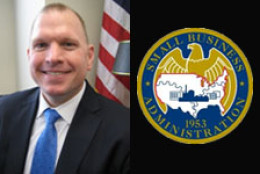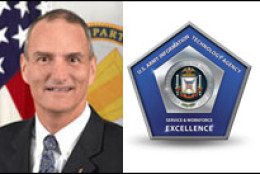Cybersecurity
-
Alex Grohmann and John Dyson from the Northern Virginia Chapter of the Informations Systems Security Association, join host John Gilroy to talk about what you can do to make your agency more secure. July 9, 2013
July 08, 2013 -
Department will move away from DoD-specific approaches to cybersecurity, lean more toward informing and relying on governmentwide efforts.
July 08, 2013 -
The Commerce Department's Economic Development Administration spent almost $3 million to remediate a cyber attack that really didn't happen. Commerce's inspector general found the attack infected only two outgoing email servers and not more than half of EDA's systems. Two cybersecurity experts say other agencies can learn from EDA's year-long unnecessary and expensive recovery.
July 08, 2013 -
Chase Garwood, the SBA acting CIO, said the agency is working with DHS and Justice to improve the security of its internal and external customer-facing systems. July 4, 2013
July 04, 2013 -
DHS, DISA and GSA are heading down similar but different paths to ensure mobile apps are secure before being allowed on devices or networks. NIST is developing voluntary guidelines to improve mobile software security based on work done in other industry sectors.
June 26, 2013 -
Cyber threats and challenges grow every day. Successfully defending our networks requires a team approach. With this in mind, the 2013 Cyber Symposium will engage the key players, including the U.S. government, the international community, industry and academia, to discuss the development of robust cyberspace capabilities and partnerships.
June 25, 2013 -
U.S. CERT said in an email to organizers the current budgetary environment wouldn't support the annual cybersecurity conference
June 19, 2013 -
Greg Garcia, the director of the Army's IT Agency, said the organization has been piloting a virtualized desktop initiative and almost is ready to move into full production.
June 19, 2013 -
House Veterans Affairs Committee Chairman Jeff Miller (R-Fla.) and ranking member Michael Michaud (D-Maine) sent Secretary Eric Shinseki a letter asking for an explanation on why VA didn't tell the committee about multiple nation state attacks. The lawmakers call for VA to offer credit monitoring services to tens of millions of veterans.
June 14, 2013 -
The Enhanced Cybersecurity Services program has seen a lot of interest by vendors, but few have invested in accepting cyber threat data from the government. Meanwhile, the Cyber Information Sharing and Collection Program is growing through the two-way sharing of unclassified threat indicators.
June 13, 2013 -
NIST, charged with developing the nation's first-ever cybersecurity baseline for critical infrastructure, says its job is to provide technical assistance to companies, but industry itself must lead the way. Gen. Keith Alexander said NSA will review the use of contractors.
June 13, 2013 -
The White House released updated progress report on the cross-agency cybersecurity goals and found most agencies improved. The administration said more agencies are using smart cards to log onto their networks and more are implementing continuous monitoring.
June 10, 2013 -
The Veterans Affairs Department has been compromised by at least eight different nation state organizations that stole data from its systems, House lawmakers and other experts say. VA officials say there always are risks, but their computer security is better than ever before.
June 05, 2013 -
The Veterans Affairs Department denies claims that systems or data are in danger. But Jerry Davis, the former deputy assistant secretary for information security in VA's Office of Information and Technology, asserts in documents that he was bullied into signing security certifications that were deficient as a condition of his departure from VA for a new job at NASA.
June 03, 2013 -
The Homeland Security Department alerted employees in its headquarters office, and its Customs and Border Protection and Immigration and Customs Enforcement components that a vendor processing background investigations may have exposed personal data. DHS emphasizes there is no evidence of any lost or stolen information.
May 22, 2013







